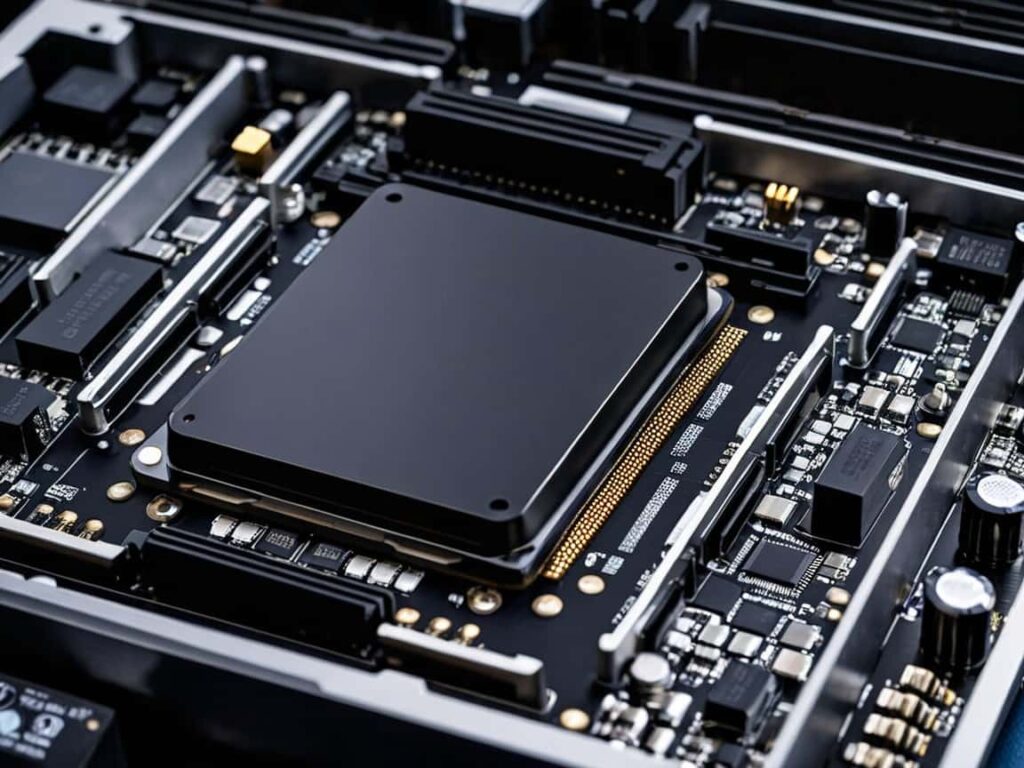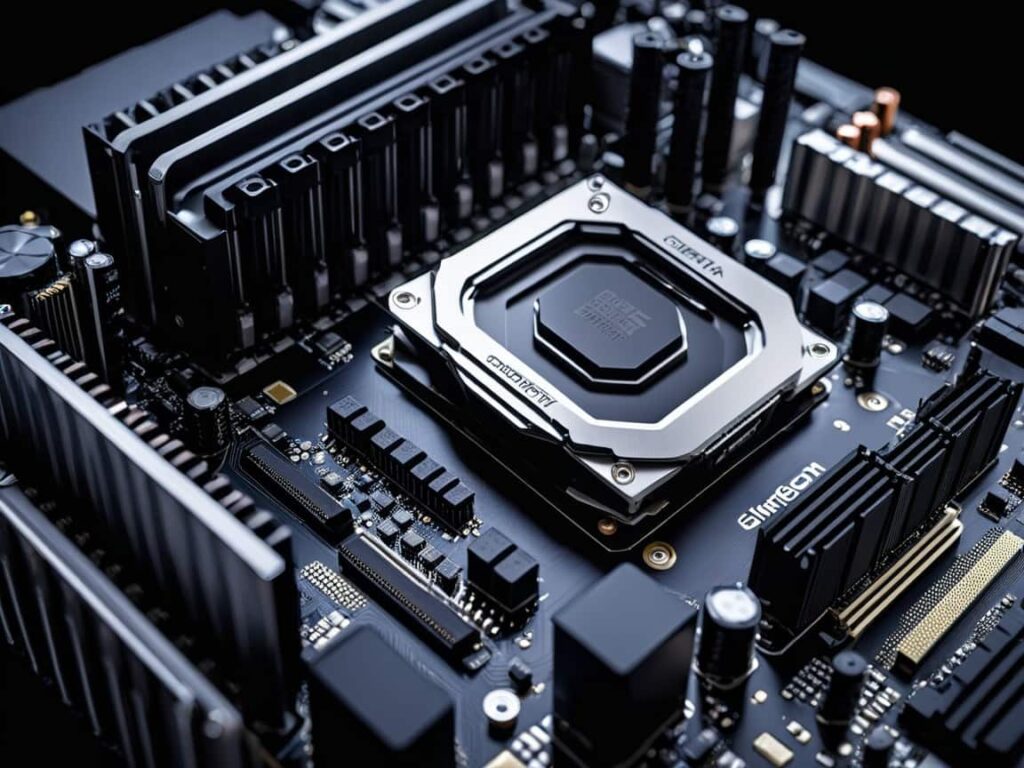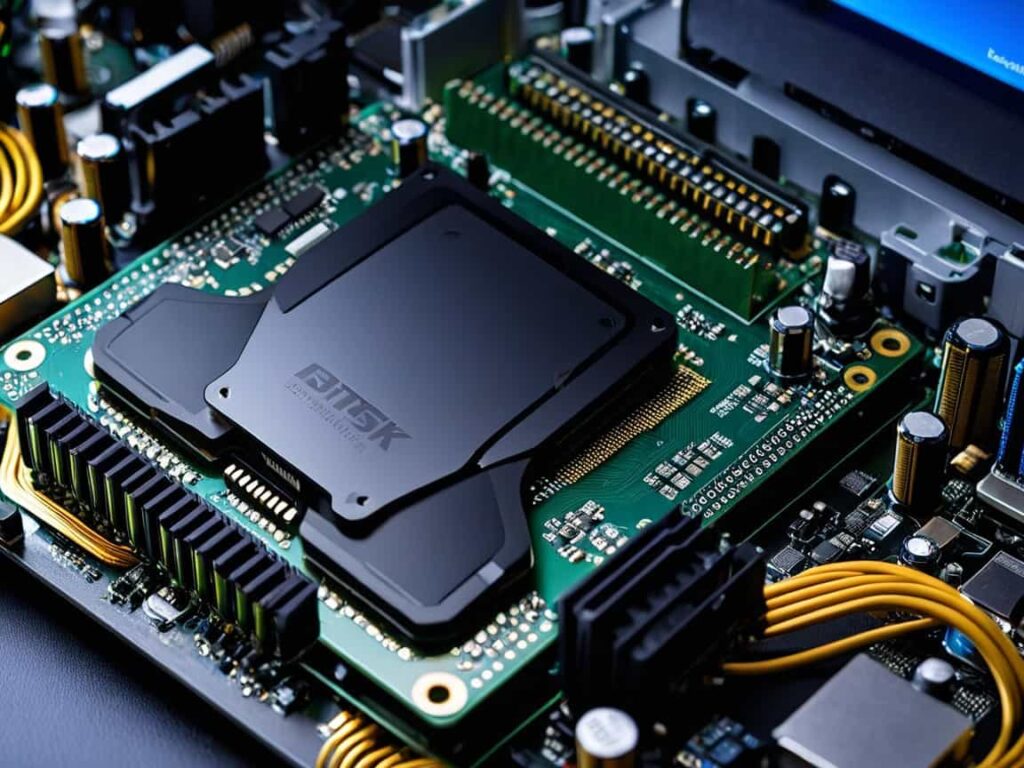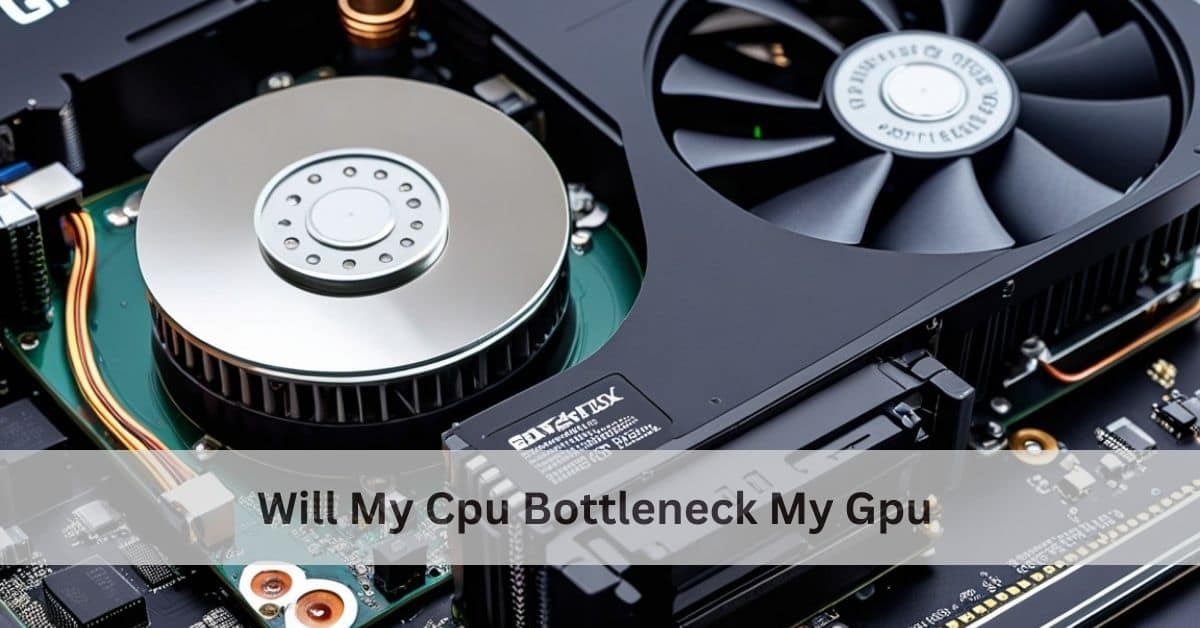I recently upgraded my GPU, but I wasn’t sure if my older CPU would bottleneck its performance. After some testing, I noticed lag in certain games, confirming a mismatch. If you’re asking, “Will my CPU bottleneck my GPU?” it’s worth checking your specs to avoid similar issues.
A CPU bottleneck happens when your processor can’t keep up with your GPU, limiting overall performance. This imbalance can cause lower frame rates or lag in games. Understanding your hardware compatibility is key to avoiding performance issues.
This article will discuss”will my cpu bottleneck my gpu”
What does it mean if my CPU bottlenecks my GPU?

If your CPU bottlenecks your GPU, it means the processor is too slow to keep up with the graphics card. This can limit performance, causing lower frame rates or stuttering during gaming. A balanced CPU and GPU are important to ensure smooth performance without any delays or issues.
Read More: Adoptopenjdk 11.24 8 Pegging Cpu Due To Printstream
How can I check if my CPU is bottlenecking my GPU?
Monitor Usage:
Monitor Usage refers to checking how much of your CPU and GPU are being used while running tasks. Tools like MSI Afterburner or Task Manager can show this information. If the CPU is working at 100% while the GPU is underused, it may indicate a bottleneck.
Check Frame Rates:
To check frame rates, use tools like MSI Afterburner or Fraps while playing a game. These tools show the FPS (frames per second) to help you understand your system’s gaming performance and identify any issues like lag or stuttering.
Resolution Testing:
Resolution testing helps check how your CPU and GPU work together at different screen settings. Lower resolutions can make your CPU work harder, which might show if it’s causing any performance issues in gaming or other tasks.
Game Type:
Game type means the category or style of a video game, such as action, adventure, racing, or puzzle. Each type offers a unique way to play, like solving puzzles, competing in races, or completing missions
Benchmark Tools:
Benchmark tools help test your computer’s performance, showing how well your CPU, GPU, and other parts work. These tools give scores to compare with other systems, helping you understand if your hardware is strong enough for tasks or games.
Will an older CPU bottleneck a new GPU?
- Yes, an older CPU can bottleneck a new GPU by not being fast enough to process data for the GPU.
- If the CPU is too slow, the GPU may not reach its full potential, resulting in lower performance.
- CPU-heavy games or applications are more likely to be affected by an older CPU bottleneck.
- The older CPU may limit frame rates, causing stuttering or lag during gaming or rendering tasks.
- Upgrading both the CPU and GPU ensures balanced performance and avoids potential bottlenecks.
Does CPU bottlenecking affect gaming performance?
Lower Frame Rates:
Lower frame rates occur when your computer struggles to display smooth images in games or videos. This can cause choppy or stuttering visuals, making gameplay less enjoyable. It often happens due to slow hardware, like a weak CPU or GPU.
Increased Lag and Stuttering:
Increased lag and stuttering happen when your CPU can’t keep up with your GPU, causing delays or jerky movements in games. This can result in poor performance and affect your gaming experience, especially in fast-paced games.
GPU Performance Limitations:
GPU performance limitations occur when the graphics card cannot perform at its full potential due to factors like CPU bottlenecking, low system memory, or outdated drivers. These issues can cause slower frame rates and reduced visual quality in games or applications.
Delayed Input Response:
Delayed input response happens when there is a noticeable lag between pressing a key or button and seeing the result on screen. This can happen in games or software and is often caused by hardware limitations or software settings.
Reduced Visual Quality:
Reduced visual quality happens when your computer can’t keep up with the game’s settings, causing blurry graphics, low frame rates, or lag. This can occur if your CPU or GPU is too weak for the game you’re playing.
What games are most affected by CPU bottlenecks?
Games that rely heavily on complex simulations or large open worlds are most affected by CPU bottlenecks. Examples include strategy games, like Civilization, and open-world games, like GTA V or The Witcher 3, where the CPU handles many tasks at once.
Can a CPU bottleneck a GPU at lower resolutions?

Yes, a CPU can bottleneck a GPU at lower resolutions, such as 1080p. When gaming at these settings, the CPU handles more of the game’s processing, and if it’s too slow, it can’t keep up with the GPU. This can lead to lower frame rates and less smooth performance. A balanced CPU and GPU are important for better gaming.
Read More: Is World Of Warcraft Cpu Or Gpu Intensive – Does It Rely
Is it better to have a stronger GPU or CPU?
It’s usually better to have a stronger GPU for gaming because most games rely more on the GPU for better graphics and smooth performance. However, having a good CPU is also important to avoid bottlenecks. The key is balancing both to get the best performance from your system.
Will overclocking my CPU reduce bottlenecking?
Overclocking your CPU can help reduce bottlenecking by making your processor faster and better at handling tasks. This can improve gaming and other performance issues where the CPU is the limit. However, it’s important to make sure your cooling system is good enough to prevent overheating when overclocking your CPU.
Does the number of CPU cores matter for avoiding bottlenecks?
Multithreading:
Multithreading is when a CPU can run multiple tasks at the same time. This helps improve performance by allowing the computer to work on different parts of a program or multiple programs without waiting for one to finish.
Modern Games:
Modern games are designed to be more realistic and immersive, with better graphics and complex gameplay. They often require powerful CPUs and GPUs to run smoothly, especially in open-world and action-packed games, which can stress system performance.
Background Tasks:
Background tasks are processes running on your computer while you’re using other programs. They can include updates, downloads, or notifications. Too many background tasks can slow down your system, so it’s good to manage them for better performance.
Productivity Software:
Productivity software helps you complete tasks faster and more efficiently. It includes programs like word processors, spreadsheets, and project management tools. These tools are useful for organizing work, managing time, and improving overall productivity in daily tasks.
Future-Proofing:
Future-proofing means choosing hardware or software that will remain useful and effective for a long time. It ensures your system can handle new technology and updates, preventing the need for upgrades too soon and saving you money in the future.
Can RAM affect CPU bottlenecks?
Yes, RAM can affect CPU bottlenecks. If your system has too little or slow RAM, the CPU has to work harder, which can slow down overall performance. Insufficient RAM can cause the CPU to wait for data, leading to bottlenecks, especially in demanding tasks like gaming or multitasking. It’s important to have enough and fast RAM for smooth performance.
Will my CPU bottleneck my GPU in VR gaming?
Yes, your CPU can bottleneck your GPU in VR gaming if it’s not powerful enough to keep up with the demands of VR. VR requires fast processing from both the CPU and GPU. If your CPU is slow or outdated, it can limit the GPU’s performance, causing lower frame rates and a less smooth experience in VR.
Does a CPU bottleneck damage my hardware?

A CPU bottleneck does not damage your hardware. It simply means your CPU is not fast enough to fully support the GPU, causing performance issues like slow frame rates. While it can affect gaming or application speed, it won’t harm your components. To fix this, you may need to upgrade your CPU or optimize settings.
Read More: Can I Use 70 Isopropyl Alcohol To Clean Cpu – Here’s What
Can I fix a bottleneck without upgrading my CPU?
Yes, you can fix a bottleneck without upgrading your CPU. Try lowering your game settings or resolution to reduce the CPU load. You can also overclock your CPU to make it faster. Closing background programs and updating drivers can help too. These steps may reduce the bottleneck and improve your system’s performance without needing a new CPU.
FAQs:
1. How can I identify a CPU bottleneck in my system?
You can identify a CPU bottleneck by monitoring your CPU and GPU usage. If the CPU is consistently at 100% while the GPU is underutilized, it’s likely a bottleneck.
2. Can a bottleneck affect my gaming experience?
Yes, a CPU bottleneck can lower frame rates, cause stuttering, and lead to input lag, negatively impacting your gaming experience.
3. What are common signs of a CPU bottleneck?
Common signs include low frame rates, high CPU usage, and lag during intensive tasks like gaming or video editing.
4. Is it possible to fix a CPU bottleneck without upgrading hardware?
Yes, reducing game settings, overclocking your CPU, or closing unnecessary background applications can help reduce the bottleneck.
5. Do I need a high-end CPU to avoid bottlenecks?
Not necessarily. A mid-range CPU that matches your GPU’s performance is usually enough. A high-end CPU may only be required for more demanding tasks.
6. Can bottlenecking happen in both gaming and video editing?
Yes, bottlenecking can occur in both gaming and video editing, especially when the CPU struggles to keep up with the demands of the GPU or software.
Conclusion:
Whether your CPU is bottlenecking your GPU is important for optimizing system performance. While upgrading your CPU is one solution, it’s not always necessary. By adjusting game settings, overclocking your CPU, or closing unnecessary programs, you can often reduce bottlenecking and improve performance.
A balanced system, with both CPU and GPU working well together, is key to enjoying smoother gameplay and tasks without limitations.
